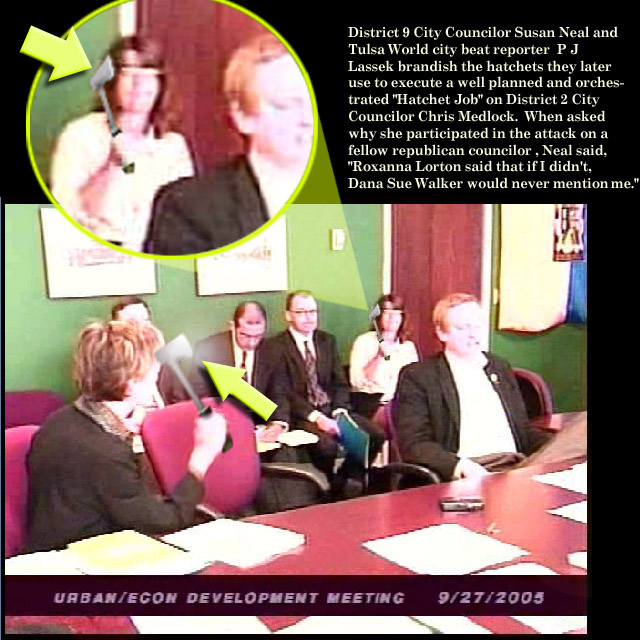Is BOk on FIRREA?
Interesting story in today's Whirled about BOk and the loan to the Tulsa Industrial Authority (TIA) that the Tulsa Airports Improvements Trust (TAIT) guaranteed. The loan money was ultimately used to finance Great Plains Airlines, which went bust despite massive taxpayer subsidies. The FAA ruled that the plan to repay the loan in the event of a default -- raising passenger service fees to purchase a part of the land on which Air Force Plant No. 3 sits for a runway extension -- would be an illegal direct subsidy to an airline.
The Bank of Oklahoma is seeking to recoup from a national auditing firm more than $9 million in losses resulting from a loan it made for the now-defunct Great Plains Airline.The bank sued PricewaterhouseCoopers LLC on Monday in Tulsa County District Court.
Its lawsuit claims that the firm presented financial statements that unfairly represented the "unrestricted" assets of the Tulsa Airports Improvement Trust, on which the bank relied in deciding to participate in the Great Plains loan.
So why didn't BOk go after PricewaterhouseCoopers LLC in the first place? Why did they demand that the City of Tulsa repay the money when some other organization was responsible for the bad loan? (The whole deal was designed so that the City itself -- the general fund that pays police officers and firefighters and other city employees -- would not have any exposure in the event that the airline failed.)
Back when former Mayor Bill LaFortune was trying to get the City Council to agree to repay the loan, I heard a theory about the situation that made sense to me.
Here is the theory, which is speculation based on this person's observations of public behavior and his knowledge of bank loans: BOk made the loan knowing that it wasn't properly secured, but with an unofficial assurance from then-Mayor Susan Savage that the City of Tulsa would make good if anything went wrong, an assurance that she was not in a legal position to make. It would have been a political promise: If it comes to that, we can get the Council to agree to cut BOk a check. To make such a loan without valid collateral would have been in violation of FIRREA, the 1989 lending reform law that was enacted in response to the Savings & Loan crisis, but as long as the loan was repaid no one would notice. No harm, no foul. When the loan went into default, BOk was frantic to get its money back to prevent the possibility of FIRREA enforcement.
That's the theory. FIRREA was created to hold bankers responsible for how they handle federally-guaranteed deposits. In the '80s, S&Ls made all sorts of risky loans safe in the knowledge that if the loans went bad, the FSLIC would take care of depositors. As I understand it, if a banker authorizes a loan without sufficient justification, and the loan goes bad, the bank can be penalized under FIRREA, as can individuals involved in making the loan -- bank CEOs and VPs, appraisers, attorneys, accountants.
Remember what would have happened if the City Council had authorized the payment to BOk for money the City of Tulsa did not owe: Individual city councilors would have been subject to liability under a qui tam action for essentially giving taxpayer money away. (E.g., if all my friends on the City Council voted to use city general fund money to pay off my minivan loan -- in recognition of my many services to the community -- they would be misusing public resources, and they ought to be removed from office.)
BOk has a reputation for being civic-minded, but it looks like BOk management's first inclination in response to this bad loan was to cover their own exposed posteriors by using the Mayor and the newspaper to pressure city councilors into dropping their own drawers.
Comments from those familiar with federal lending regulations would be especially welcomed.

